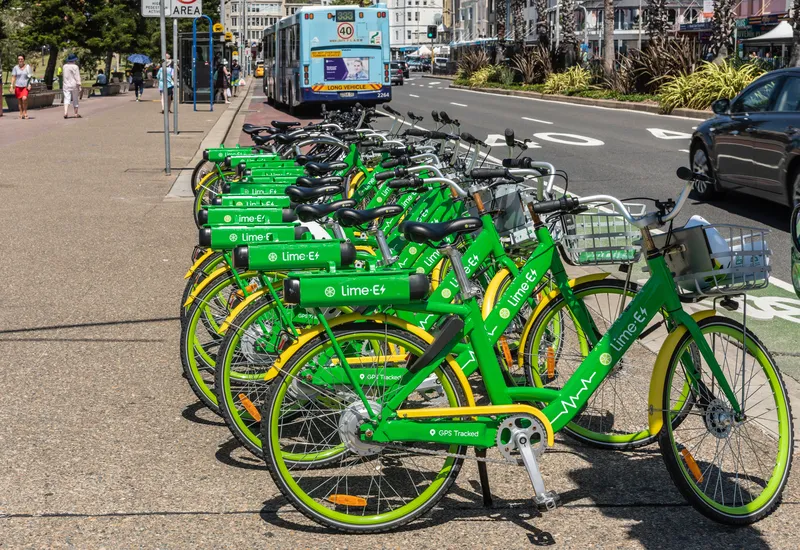Australia’s 2014 National Electronic Tolling Conference (NeTC) inspired lively debate among the 130 delegates about tackling the need to replace seven-plus million tolling tags that are reaching the end of their life.
In his opening address, Australian Toll Road Users’ Group Chair Rex Wright said the industry was potentially facing a US$94 million bill over the next five years to replace old tags. As Australian tolling authorities operate a harmonious national tag system, all toll operators are committed
June 11, 2014
Read time: 3 mins
Australia’s 2014 National Electronic Tolling Conference (NeTC) inspired lively debate among the 130 delegates about tackling the need to replace seven-plus million tolling tags that are reaching the end of their life.
In his opening address, Australian Toll Road Users’ Group Chair Rex Wright said the industry was potentially facing a US$94 million bill over the next five years to replace old tags. As Australian tolling authorities operate a harmonious national tag system, all toll operators are committed to a unified national approach, consistent with the current interoperability.
The debate included discussions on the many tolling models in use worldwide, including: the7641 EROAD GNSS/cellular electronic road user charging system for both heavy and light vehicles in New Zealand and Oregon, USA; the ‘go via’ integrated payment model used by 821 Queensland Motorways which integrates five separate pieces of infrastructure to eliminate back office duplication and improve the customer experience; the SunToll TollAssist application for mobile which provides an alternative to toll tags; and 108 Q-Free’s video recognition, which the company says is achieving up to 98 per cent recognition of licence plates in Taiwan.
Delegates also heard from WestConnex Delivery Authority acting director Commercial and Procurement, Matt Webb, who reported on Sydney’s recently launched WestConnex expressway and the complications of rolling out a toll road over multiple phases with the potential for multiple concessions to fit with government funding and construction timelines.
New796 Transmax chief executive officer Jamie Smith highlighted the value of the Streams ramp metering technology to help toll road operators reduce congestion, maximise traffic flow and improve safety to increase revenue.
Overseas project case studies included the Brazilian interoperability free flowing tolling experience presented by Schneider; the South African Gauteng Open Road Tolling project outlined by4984 Kapsch TrafficCom Australia; and the I-595 Express Corridor in Florida, USA explained by 6770 SICE, which said the reversible express lanes impose variable toll rates according to peak travel times, which optimises use of the road and revenue to the owner.
858 ITS Australia chief executive officer Susan Harris said the forum continues to reflect the maturity of the tolling industry in Australia. “A great diversity of industry partners and competitors come together to share learning and explore common challenges at NeTC,” she said.
“Many delegates remarked with surprise at the openness and willingness of the speakers to share information with peers in this highly competitive market. Case studies and update reports on dozens of tolling projects based in Australia and overseas were presented.
“Conference themes included patronage analysis and behaviour, emerging technologies, enforcement and compliance. As a result of the growing number of tolling applications in individual cities, a popular and valuable topic was increasing back office efficiency,” said Harris.
In his opening address, Australian Toll Road Users’ Group Chair Rex Wright said the industry was potentially facing a US$94 million bill over the next five years to replace old tags. As Australian tolling authorities operate a harmonious national tag system, all toll operators are committed to a unified national approach, consistent with the current interoperability.
The debate included discussions on the many tolling models in use worldwide, including: the
Delegates also heard from WestConnex Delivery Authority acting director Commercial and Procurement, Matt Webb, who reported on Sydney’s recently launched WestConnex expressway and the complications of rolling out a toll road over multiple phases with the potential for multiple concessions to fit with government funding and construction timelines.
New
Overseas project case studies included the Brazilian interoperability free flowing tolling experience presented by Schneider; the South African Gauteng Open Road Tolling project outlined by
“Many delegates remarked with surprise at the openness and willingness of the speakers to share information with peers in this highly competitive market. Case studies and update reports on dozens of tolling projects based in Australia and overseas were presented.
“Conference themes included patronage analysis and behaviour, emerging technologies, enforcement and compliance. As a result of the growing number of tolling applications in individual cities, a popular and valuable topic was increasing back office efficiency,” said Harris.









